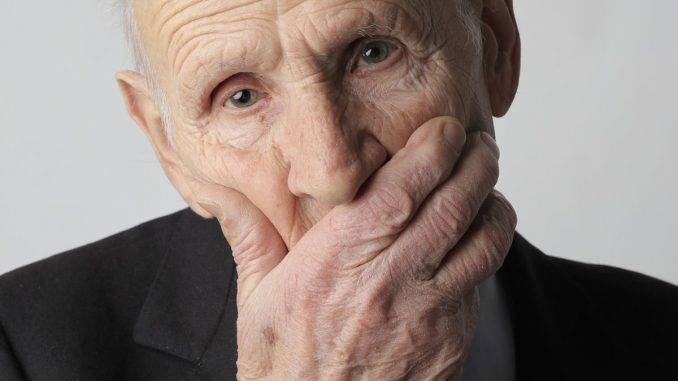

- Tooth loss in seniors often results from gum disease, decay, or injury, impacting overall health and well-being.
- Regular dental check-ups, cleanings, and proper denture care are vital for managing elderly oral health.
- Dental implants offer a more permanent solution for tooth loss but require careful evaluation for candidacy.
- A nutrient-rich diet and good oral hygiene practices are essential to prevent further tooth loss in seniors.
- Addressing tooth loss improves seniors’ quality of life, nutrition, and confidence, enhancing well-being.
Oral health might not be the first thing to consider when considering elderly care. However, for caregivers and seniors alike, the health of one’s teeth plays a critical role in overall well-being. Tooth loss, unfortunately, is quite common among the elderly and presents a series of challenges that need to be addressed with care and understanding.
This comprehensive guide is designed to provide elderly caregivers with the knowledge and tips necessary to manage tooth loss in their patients. With a focus on prevention, maintenance, and improved quality of life, caregivers can incorporate these strategies to enhance the health and happiness of their patients in their golden years.
Understanding Tooth Loss in the Elderly
Tooth loss among seniors is often a result of a lifetime of oral health issues, such as gum disease or poor dental hygiene. This section dives into the specific causes and impacts of tooth loss, outlining the importance of this issue.
What Causes Tooth Loss in the Elderly?
There are several causes for tooth loss in the elderly, the most common being gum disease, tooth decay, and injury. For some, it can be a natural result of aging, but other underlying factors can exacerbate the process or cause it to happen prematurely.
The Wider Implications of Tooth Loss
Beyond the immediate loss of chewing function, tooth loss can lead to various health problems, including malnutrition, speech issues, and even social withdrawal due to self-consciousness. Understanding these implications is the first step toward a proactive approach to maintaining oral health in seniors.

Tips for Dealing with Tooth Loss
To address tooth loss effectively, caregivers can implement a series of practices that work in tandem to ensure the best possible oral care for their elderly charges.
Regular Dental Check-ups and Cleanings
Encourage and facilitate regular dental visits. Professional cleaning and check-ups can identify issues before they progress, and cleanings can remove plaque and tartar that is particularly challenging for the elderly.
Proper Denture Care and Maintenance
For many elderly individuals, dentures are a part of daily life. It’s essential to ensure that they fit well, are regularly cleaned, and that the mouth underneath is cared for to prevent sores and infection. If necessary, consult a dentist to adjust or replace dentures for maximum comfort and functionality.
Dental Implant Evaluation
When appropriate, consider a dental implant procedure as a long-term solution for missing teeth. They can be costly, but they offer a more permanent and natural alternative to dentures. A dentist can evaluate whether an individual is a good candidate for this procedure.
Balanced Diet and Nutrition
A balanced diet, particularly one with appropriate levels of calcium and vitamin D, is critical for supporting bone health and preventing further tooth loss. Some older adults may have difficulty eating certain foods, so caregivers should work with them to ensure they get the necessary nutrients.
Oral Hygiene Practices
Encourage a daily oral hygiene routine that includes brushing, flossing, and cleaning dentures. These practices help prevent further decay and issues associated with tooth loss.
Communication and Support
Maintaining open communication and providing emotional support are as important as the physical aspects of care. Many seniors feel embarrassed or frustrated by tooth loss, and simply being there to offer understanding can make all the difference.
Benefits of Addressing Tooth Loss
By addressing tooth loss with the tips outlined in this post, caregivers can contribute to an improved quality of life for their elderly patients.
Improved Quality of Life
With a healthy mouth, seniors can eat more comfortably, significantly improving their quality of life and enjoyment of food. Even small improvements in chewing function can make a big difference.
Better Nutrition
A wider range of foods can be consumed, improving overall nutrition and health. From a physical standpoint, this can help prevent other health issues associated with poor nutrition. If a senior is unable to chew certain foods, consult with a dentist or nutritionist to find alternatives.
Enhanced Confidence
A well-maintained smile can make a huge difference in self-esteem and social interactions. This boost in confidence can lead to a more active and engaged lifestyle. With proper oral care, seniors can feel confident and comfortable with their smiles.
Dealing with tooth loss in the elderly is not only possible but can also lead to significant improvements in their well-being. By understanding the causes and impacts of tooth loss, incorporating these practical tips, and recognizing the benefits of addressing this common issue, caregivers can ensure that the seniors in their charge experience their later years with a healthy and happy smile. With proper care and support, tooth loss does not have to hinder the enjoyment of life in one’s golden years.